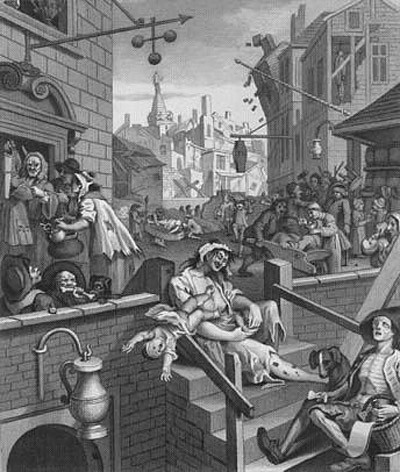Twain
"First they done a lecture on temperance; but they didn't make enough for them to both get drunk on." (Twain, Adventures of Huckleberry Finn, p.356)

Here, Huck is talking about a pair of con men, Duke and King, that are forcibly traveling with him and Jim. The con men are making their way along the river, scamming the people in the villages they pass by and are at it again because they have traveled far enough away from the last place they were caught to start up again. Huck is relaying one of their failed attempts.
This sentence comes only five lines into chapter 31 of Huckleberry Finn and it is one of those lines that wakes you up from the fairy tail of the boy's summer adventure. It's quintessential Twain in that his point isn't superficially apparent, but it's there for the taking. At least something is. There are a few levels of meaning and that quality is another that makes it very Twain as well.
Here Twain is calling attention to the hypocrisy that plagues humanity in his classic humorist style, using Duke and King. Another thing going on here is the temperance movement of the 1800's was picking up steam in the time the Huck Finn was written and within the time frame it was set as well; this line in particular could speak to Twain's ideas about it, but not what side of the movement he was actually for. Finally, as with many of the writers we've looked at thus far, such as Bierce and Harte, this is another signpost that tells the reader that they should examine who the "bad guys" are in the story, and in a larger sense to pay close attention to what's happening.
King and Duke giving a temperance lecture in order to get money to get drunk is not only hypocritical, it's ridiculous. I think that right after that line is where you're supposed to pause for dramatic effect and follow it up with an naive look. If you were telling a humorous story, that is. The problem with humor, especially with a message behind the message is deciphering what that message is. Is it a prod to take all into moderation, including something thought to be good such as temperance? Could it be a reinforcement of why moral issues are legitimate concerns or how ethics fail us? Or could it be really just be a joke? I think, all of the above.

No comments:
Post a Comment